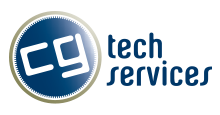If you want to save money on your IT system, one way to do so is by getting low-priced computer hardware. But that doesn’t mean you should settle for old or low-end models. Instead, consider investing in thin or zero clients.
What are thin and zero clients?
Thin clients are stripped-down computers with minimum processing power and memory.
How to reduce IT costs with thin and zero clients
PHI best practices that all business leaders should know
Protected health information (PHI) is a common target of cybercriminals, as the personal, medical, and financial information that comprise it can be abused for financial gain. This is why businesses that handle PHI should take every step possible to ensure that their clients’ data is always protected.
Ways to safeguard your company’s data
Some of the most well-known companies in the world, including Sony Pictures, Home Depot, Adobe, and eBay, have been victims of cyberattacks. While major corporations like these are high-profile targets for hackers, small- and medium-sized businesses are not exempt from data breaches.
5 Ways systems can be breached
When it comes to business IT security, many small- and medium-sized businesses like yours often struggle to protect their systems from cyberattacks. One primary step is to be aware of online threats. Here are five common ways your systems can be breached.
Why managed IT services is best for cybersecurity
Today’s companies need technology to function. Without it, businesses cannot compete and succeed. But with technology comes the ever-constant threat of hackers and cybercriminals. That’s why small- and mid-sized businesses need to protect themselves with robust cybersecurity solutions managed by IT professionals.
How to secure protected health information
Protected health information (PHI) includes different types of data, including a patient’s Social Security number, billing information, and health condition. Because of the wealth of confidential information it encompasses, PHI is highly valuable to hackers, who can use stolen PHI to carry out fraudulent activities.
Cutting IT hardware costs with thin and zero clients
If you want to cut costs on IT hardware, don’t settle for cheap but old or low-quality machines. They’ll likely offer subpar performance, which will hurt your team’s productivity. What’s worse, they’ll likely break down often, too, which means the money you initially saved will go to repairs and upgrades.
Mitigating cybersecurity insider threats
Did you know that in some industries the biggest cybersecurity threats come from inside a breached organization? Sometimes it's motivated by financial gain and sometimes it's plain-old ignorance. So how can you protect your organization from insider threats?
#1 Educate
You must teach your team to recognize personally identifiable information (PII) and understand the financial implications of a breach.
5 Security issues to look out for
The security of your systems and technology is a constant battle, and one you will likely never completely win. There are significant steps you can take to secure your systems, but having knowledge about your systems is one of the most effective tools.
Tips for safeguarding business data
You can’t afford to lose business data. It takes away the trust of your clients, leading to loss of revenue. Cybercriminals are here to stay, so it’s more important than ever to utilize tight security measures to keep your business data safe. Still, some hackers may have advanced cracking skills, or are really determined to break into your network, so it’s a good idea to use the following methods for safeguarding your corporate data.
- 1
- 2
